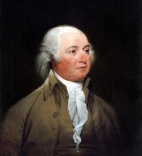Thank you for reading this essay on the literature of revolution. It is part of an ongoing series titled Old Friends and this is the first contribution on Barnard Bailyn’s The Ideological Origins of the American Revolution.
What was essentially involved in the American Revolution was not the disruption of society, with all the fear, despair and hatred that that entails, but the realization, the comprehension and fulfillment, of the inheritance of liberty and of what was taken to be America’s destiny in the context of world history.
– Bernard Bailyn
Revolutions just don’t happen. They evolve. They begin with ideas and those ideas must be communicated somehow. The revolution is not just in the conflict, but words. The language itself is transformed. What was truly peculiar about the American colonies was the means by which they communicated. The colonies had a strong tradition of producing newspapers and gazettes. But what exploded during the 1760’s was the use of pamphlets. These were raw productions bereft of editorial review. All that was required to produce and distribute pamphlets was a printing press and some money to cover the costs. Pamphleteers were not seeking financial gain from this exercise. They were exhibiting a passion for justice and had as a singular objective the communication of grievances and a demand that they be addressed. As 1776 approached, pamphlets evolved to engage concepts of governance. In 1767, the question addressed may have been how the Crown could resolve these matters. By 1776, the question changed to the mechanics of how we, as a self-governing nation, could solve these matters.

Bailyn quotes none other than George Orwell when he stated,
The pamphlet is a one-man show. One has complete freedom of expression….. since the pamphlet is always short and unbound, it can be produced much more quickly than a book, and in principle, at any rate, can reach a bigger public.1
Pamphlets had been around since the time of Luther. By the middle of the 16th century, ideas were flying all over Europe, producing unique challenges to monarchs who saw their suzerainty as supreme. Short pamphlets were novelties and were ravenously consumed. Pamphlets would fuel the spread of Protestantism and would be an important factor in the English Civil War of the 1640’s. So it is no surprise that pamphleteering would appear in the colonies as the literature of revolution. But their utilization in America was sparse because it lacked necessity. Bailyn observed 400 pamphlets in print from 1750 to 1767. The subsequent seven years would produce 1500! In today’s standards, this may not seem like much. But the objects themselves were permanent, transferable and totally beyond the control of a governing authority. They were, in their time, “viral.” Arguments cranked out on a small printing press in Boston would eventually find themselves in the tavern or parlor in Virginia. These discussion groups would become the seeds of the Committees of Correspondence that emerged in various colonies. These small groups would significantly influence the legislative assemblies who would eventually appoint delegates to the Continental Congress. It would be this body that would produce the Declaration of Independence.
Alongside the distribution of the pamphlet was the existence of the press which was generally more cautious (after all, they wanted to stay in business). Bailyn notes that Orwell distinguished the press from that of the pamphlets.
Orwell’s spirited introductory essay was sparked by his belief that in twentieth-century society the press does not adequately represent all shades of opinion. “At any given moment there is a sort of all-prevailing orthodoxy, a general tacit agreement not to discuss some large and uncomfortable fact.” He looked back to the days of vigorous, highly individualistic pamphleteering with nostalgia, and hoped that people “would once again become aware of the possibilities of the pamphlet as a method of influencing opinion, and as a literary form.”2
And so history is repeating itself? Could Orwell have foreseen the Internet and “blogging,” or the cellular replication of an idea from the web page to a “tweet” or a video posting. What is significant about these transitions in communication is how they can disrupt society through the introduction not only of ideas, but possibilities. Bailyn concluded that something happened between airing grievances to suddenly giving birth to unique, untested institutions of governance.
What was essentially involved in the American Revolution was not the disruption of society, with all the fear, despair and hatred that that entails, but the realization, the comprehension and fulfillment, of the inheritance of liberty and of what was taken to be America’s destiny in the context of world history.3
There is a lot being said by Bailyn. Pundits and academics these days decry “American exceptionalism” as nothing more than jingoistic arrogance. They do so by ignoring, or simply not believing, that in 1776 IT WAS EXCEPTIONAL. No one in the world was postulating that human beings could govern themselves without a monarch present, without some measure of authoritarian governance.
By then Americans had come to think of themselves as in a special category, uniquely placed by history to capitalize on, to complete and fulfill, the promise of man’s existence. The changes that had overtaken their provincial societies, they saw, had been good: elements not of deviance and retrogression but of betterment and progress; not a lapse into primitivism, but an elevation to a higher plane of political and social life than had ever been reached before. Their rustic blemishes had become the marks of a chosen people.4

In this, John Adams sums it up.
The liberties of mankind and the glory of human nature is in their keeping. America was designed by Providence for the theatre on which man was to make his true figure, on which science, virtue, liberty, happiness, and glory were to exist in peace.5
Those were remarkable assertions. Yet contrast that to what we see today. To understand what sort of men revolted against the British, you have to look at what Bailyn observed – they did not “lapse into primitivism.” As you watched Portland, Minneapolis and Seattle burn in the summer of 2020, could you say of the rioters that “the liberties of mankind and the glory of human nature is in their keeping?”
Our country, today, is in severe difficulty. In part this is due to a tectonic shift on how we communicate ideas. And this same technology is introducing a new dimensional threat to liberty. Our response is important. First, we must focus on ideas. We must carefully consider what it is we believe in. Secondly, we must consider where we are going. In 1767, America’s founders had no certainty on the latter. They would spend the next nine years formulating an answer. We likewise must be patient. Our problems will not be solved after the next Congressional election. We must rediscover the ideas and values that defined the American Revolution and once again champion them.
Footnotes
1The Ideological Origins of the American Revolution, p.2, citing George Orwell, “Introduction”, British Pamphleteers (1948-51). From this point, Bailyn’s book will be referred to as IOAR.
2Ibid, pp. 2,3
3IOAR, p.19
4IOAR, p. 20
5IOAR, p. 20, citing from John Adams, Diary and Autobiography, I, 282.
© Copyright 2021 to Eric Niewoehner.
